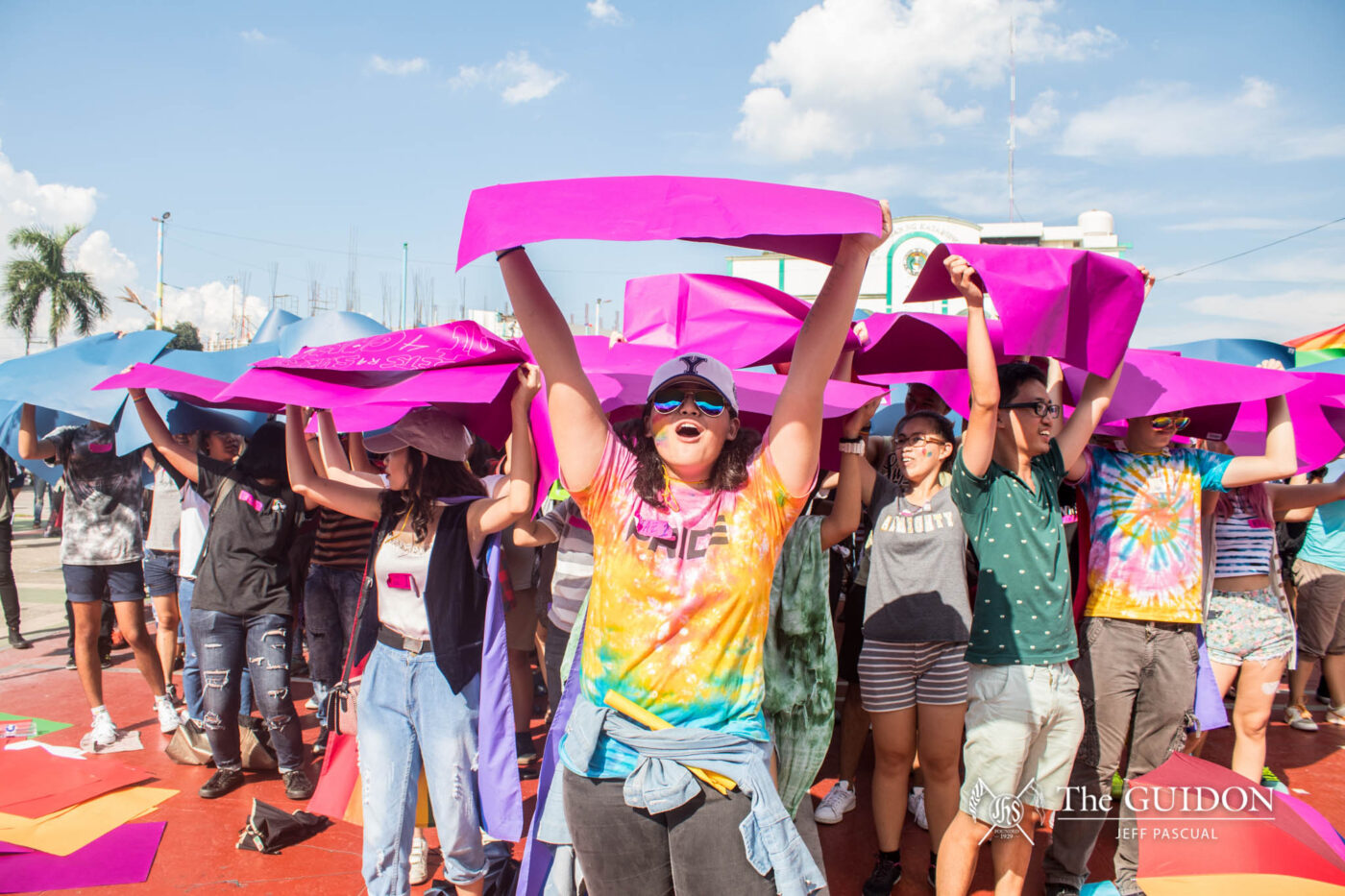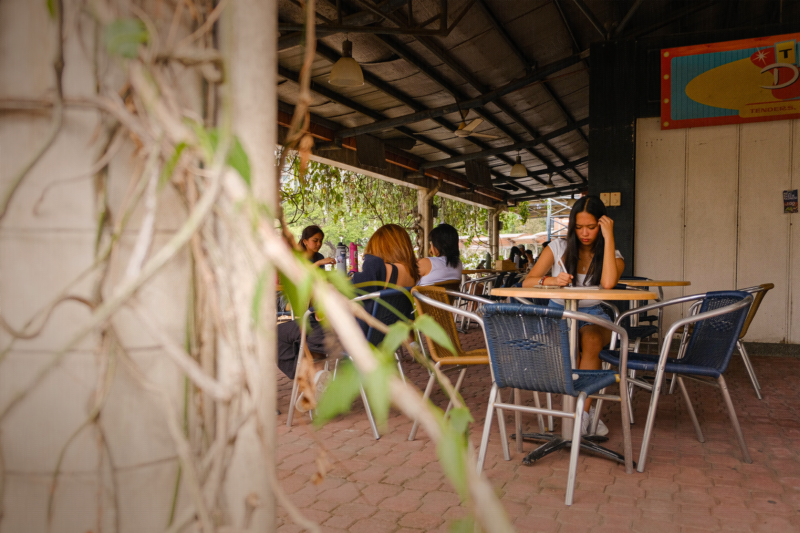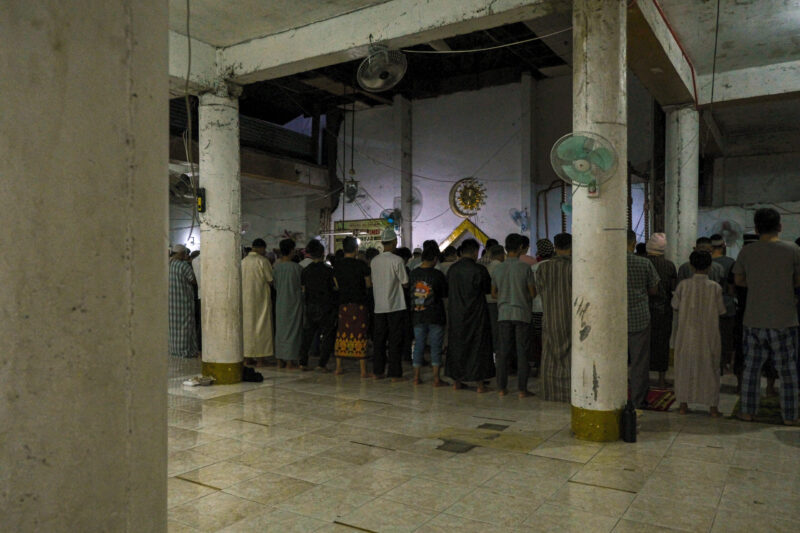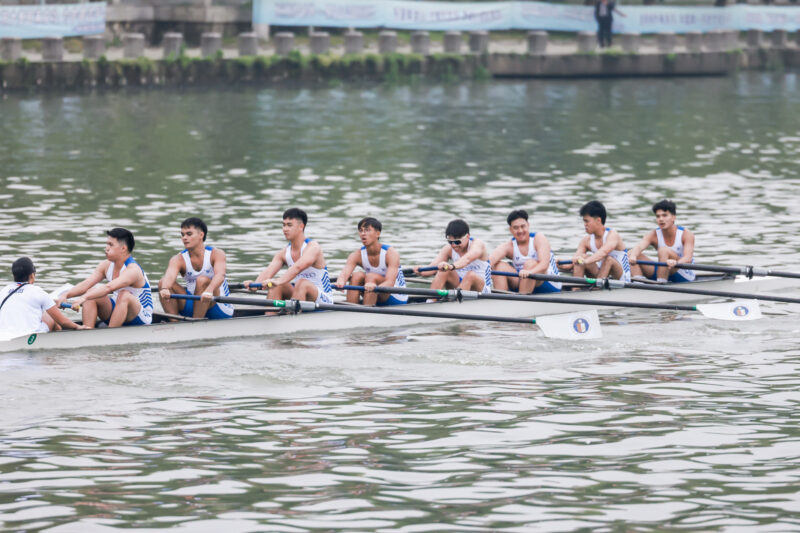The blazing sun and the scorching heat did nothing to deter the people as they donned on their armor during Pride March 2017. Clasping their rainbow-themed accessories while proudly showing the world who they truly are, people from different backgrounds all came together to celebrate and fight. Filled with joy and hope, they faced the world head on as they marched for one cause: equality and acceptance.
In the Philippines, although the country has been ranked as one of the most gay-friendly countries in the world, Filipinos commonly use the terms “bakla,” “bading,” “tibo,” and “tomboy” when referring to the LGBTQ+. The misuse of these terms reflects how the Philippines has a long way to go in understanding the LGBTQ+.
Constant confusion
Literature Instructor Miguel Lizada, who specializes in Queer Theory, says, “When people think of bakla, they normally picture a cross-dressing parlorista, [and] when people think of tomboy, people normally think of a butch lesbian.”
“In fact, when Jake Zyrus came out, homophobes called him a tomboy. He is not a tomboy, he is a transgender man. He is a man,” he adds.
Unfortunately, Jake Zyrus has become the butt of people’s jokes. Even Esquire, an online magazine, released an article. The magazine quickly took it down and promptly offered an apology after readers had pointed out how rude and disrespectful the article was.
This only shows how Filipinos tend to confuse gender and sexuality. Lizada explains, “[As Judith Butler would say], gender identity has to do with how you ‘perform’ your version of maleness or femaleness, or more importantly, how you transgress the [boundaries between the two] through performativity. Sexuality refers to, among other things, your sexual orientation.”
With the need to always be politically correct, one may speculate as to how the few terminologies in the Filipino language can encompass everyone in the community. Lizada, however, states that “the difference in terms does not mean that we are inferior to the Anglophone countries or that [the terms we already use] are inappropriate.”
The terms “bakla,” “bading,” “tibo,” and “tomboy” are considered to be derogatory for butch lesbians and effeminate gay men. However, Lizada argues that “it depends on how [they are] used” since even Filipinos who are part of the LGBTQ+ have embraced these terms and have started affectionately calling each other as such.
“[The word] sari is at the heart of our word for gender. Kasarian is telling of how our concept of gender is, in fact, a celebration of pluralism,” adds Lizada. “The words that we utilize these days may be our attempt to accommodate a gender classification that may not have existed prior to contact with European and American colonizers.”
Building bridges
Conflict stems from the lack of knowledge people have on a subject. And in discrimination, it isn’t any different. In the Philippines, there has been a lack of discussions on the topic of LGBTQ+.
Fortunately, certain private institutions like universities and colleges regularly host events to spread awareness to their student body. The problem with this, however, is that these events are limited to the people who are a part of these private institutions.
Senator Risa Hontiveros shares, “Education and re-education has to happen everywhere.” This means that awareness must happen from formal education in schools to non-formal education in our respective homes, and even to social institutions like the media, our churches and faith communities, and workplaces.
Some government officials have already proposed bills that would address the issues faced by the LGBTQ+. Hontiveros says, “[It is in our] workplaces where the Anti-Discrimination Bill is seeking affirmative actions and diversity programs in the different offices and companies.”
The Anti-Discrimination Bill addresses the kind of discrimination on the basis of sexual orientation and gender identity. “The bill is currently in interpolation and has been slowed down,” shares Hontiveros. Despite this, Hontiveros says that she has also been consulting with the LGBTQ+ community and equality advocates regarding the bill.
Coloring outside lines
June is considered as the month when Filipinos celebrate Independence Day and for our Muslim brothers and sisters, Eid al-Fitr. What few people acknowledge is the that June is also the month when the LGBTQ+ celebrate the reminder of their collective struggle to be accepted and acknowledged by society and to receive the same treatment as heterosexuals have.
Hosted in June, Pride March is a commemoration of the Stonewall riots that happened in New York in 1969. The Stonewall riots were sporadic and aggressive demonstrations by members of the LGBTQ+ against a police raid that happened at the Stonewall Inn, a gay bar located in New York.
In the Philippines, with music flowing through the speakers and rainbow flags proudly being waved by the participants during Pride March 2017, it’s easy to forget the struggles that the LGBTQ+ face until today.
Lizada says, “Having fun in the Pride March is part of the experience, but one should also remember that we do this to remember the protest that was and the fight that still continues.”
The acceptance, acknowledgement, and understanding of the LGBTQ+ is well within sight. Although it is a slow boil, more and more people are slowly coming to accept the LGBTQ+ for who they are. With the continuous spread of awareness and education through various modes, hopes for an LGBTQ-inclusive nation should not be lost.







